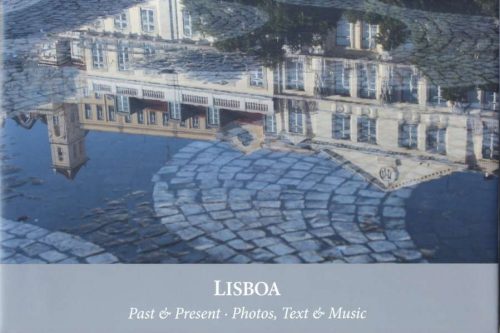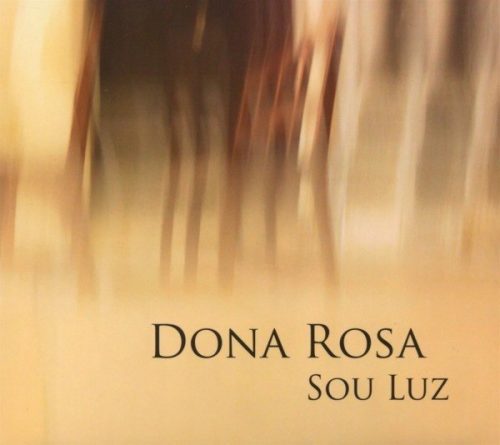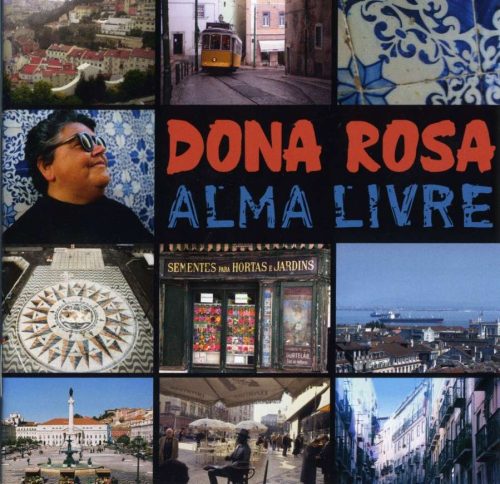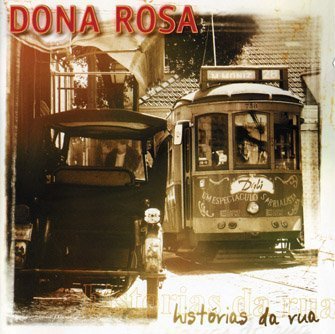In 1999, a Portuguese production company needed a Fado singer for an Austrian Television Company production to be recorded in Marrakech. The program’s musical director, the well-known Viennese artist and impresario André Heller, had a particular blind street singer in mind. Many years ago he had heard a blind street singer; a woman whose voice had moved him so deeply that she haunted his memory ever since. The search for her implied some difficult detective work, but finally she was found – Dona Rosa.
Dona Rosa was born in a poor family on the 1st of February in 1957. At the age of four she fell ill with a severe case of meningitis to which she lost her sight. Her family who had to go begging in the streets to make a living could not easily accept the child’s handicap, but somehow managed to provide a basic education for her; she learned how to read and write and how to accomplish simple manual tasks. Coming of age, she realized that she had to leave her family for good.
Dona Rosa decided to stay in Lisbon and to join other blind homeless people from whom she quickly learned how to earn a living in the streets. What she didn’t earn by selling magazines or lottery tickets, she earned by begging. Dona Rosa continued to do so until some day somebody suggested her to use her beautiful voice as means of livelihood. This is how a singer emerged in the middle of the streets of Lisbon – a singer who sensitively translated her bitter fate into music. Gradually, Dona Rosa became an inseparable element of Lisbon´s urban features.
Braille Alphabet
Style
Today, accompanied by a triangle (once given to her by a friend), accordion, guitar and percussion, she sings her own special kind of Fado (the Portuguese version of blues). Her unique voice is able to break it all down to the heart of the matter; it is an expression for longing that expands the boundaries of our narrow and logical minds aiming directly to our hearts. We, as audience, are left with the task to recognize, analyze and intensely feel those places that are touched and nurtured by her as our hearts are turning inside-out. More than traditional Fado singing, her song expresses all the misery suffered by the poorest of the poor and gives a voice to their profound yearning for a better life they will probably never be able to call their own.
“Sometimes I sing crying inside, by singing you are able to throw away some of the sadness.” Dona Rosa
Performance
It was a track on Charlie Gillett’s World 2004 compilation that first drew the attention of the English – speaking world to Dona Rosa. The overwhelming success of her first CD has surprised everyone including herself. Since then she has developed from a street singer to a stage performer. Now, she performs on stages in Taipei, from Moscow to Los Angeles and even on Womad stages in Spain and England. Rosa has given more than 200 concerts in Europe and become familiar with things that were a total mystery to her in her previous life- airplanes.
In 2016 she created a new program ” Lisboa – I close my eyes in order to see better “. The program contains 2 parts: Before the break the Trio is performing in a complete dark room. The second part shows fotos from Lisboa. These fotos are taken from the fantastic fotobook “Lisboa”. This program is a big success, most of her shows are sold out!
“A voice that is timeless and touching” Charlie Gillett
“Portuguese folk of a melancholy vintage” Songlines
“Her chosen songs, though mostly modern, have the haunted, incantatory feel of ancient ballads, rendered in a voice that is at once silvery clear and slightly throaty. Her apparently artless delivery gets to the emotional truth of this material in a way more sophisticated performers mights struggle to achieve for years.” Daily Telegraph
” […] her modest appearance is a reflection of her uncomplicated delivery. Her voice hasn’t got great emotional range. It doesn’t swoop or declaim so much as ride the melodies of the songs she sings, drenched in the saudade (yearning) born of a lifetime’s struggle for survival and acceptance, and it’s a voice that is both enchanting and moving.” fRoots
Rosa Martins – vocals, triangle
Raul Abreu – Portuguese guitar
Ines Vaz – accordion






